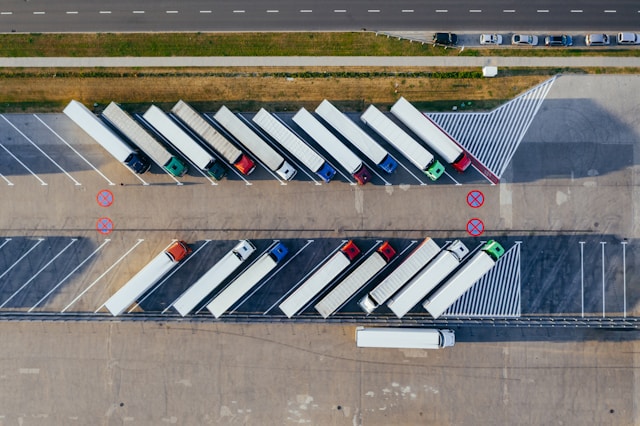Extradition is the process by which one country formally requests another to surrender a person accused or convicted of a crime. This mechanism, rooted in international law, allows governments to pursue suspects across borders. The logistics of extradition involve complex coordination between law enforcement agencies, judicial authorities, and diplomatic channels to ensure secure, timely, and lawful transfer of individuals. However, extradition is governed by strict legal standards, bilateral or multilateral treaties, and procedural safeguards. If you or someone you know is facing such proceedings, contacting extradition lawyers with expertise in international cooperation and the logistical nuances of cross-border transfers is crucial for a proper defense.
Extradition Treaties: The Foundation of Legal Cooperation
Extradition is only possible when two countries have a treaty or agreement in place. These treaties outline which crimes are extraditable, the documentation required, and the legal protections afforded to the individual. Some of the most widely used agreements include:
– The European Convention on Extradition
– The UN Model Treaty on Extradition
– Bilateral treaties between the United States and dozens of other countries
These legal frameworks specify that extradition cannot proceed for political offenses, if the accused risks torture or inhumane treatment, or if the offense does not exist in both jurisdictions.
Without a treaty, extradition becomes a diplomatic issue and may not be enforced at all. That’s why certain individuals strategically seek refuge in countries without extradition to the US or other nations.
How Countries Cooperate Through Extradition
When a country receives an extradition request, its legal authorities examine several aspects: the treaty in force, the nature of the crime, and the personal circumstances of the individual. If the request complies with national and international law, it proceeds to court review.
In democratic systems, courts play a central role in approving or rejecting extradition. Judges evaluate whether the crime is politically motivated, whether due process was followed in the requesting country, and whether extradition would violate the person’s rights under national or international law.
In contrast, some regimes approve extraditions with minimal review, raising the risk of abuse. That’s why timely legal action is essential to prevent wrongful detention or transfer.
Legal Defense in Extradition Cases
Legal defense in extradition matters is highly technical. It involves contesting the validity of the request, demonstrating potential human rights violations, or invoking asylum or protected status.
The Role of the Defense Team
Lawyers can challenge the request based on a range of arguments:
– Lack of treaty or improper jurisdiction
– Political motivation behind the charges
– Risk of torture, unfair trial, or death penalty
– Violation of the principle of dual criminality
An experienced defense team collects evidence, prepares legal briefs, presents expert opinions, and communicates with local courts and foreign authorities. Some cases also involve filing for interim protection with human rights courts or seeking emergency injunctions.
Examples of Legal Protection
Interpol-Stop has helped numerous clients facing extradition threats, especially those with politically sensitive profiles. In one case, a client targeted by a foreign regime for journalistic work was arrested based on a Red Notice. The legal team swiftly challenged the extradition in local courts, arguing it violated both national asylum laws and international human rights standards. The court denied the request, and the Red Notice was later removed.
In another instance, a businessman accused of financial crimes in a politically unstable country faced detention in Europe. Interpol-Stop’s team proved the charges were part of a commercial dispute, not a criminal offense. The court dismissed the extradition on legal grounds, and the client resumed normal life.
These cases highlight how expert strategy and fast action can neutralize even complex international threats.
When to Seek Help
If you suspect that an extradition request or INTERPOL Red Notice may be filed against you, it is essential to act before authorities take action. Once a person is detained, the legal process becomes more restricted, and options for preventing extradition may narrow significantly. Early legal intervention allows for strategic preparation, document collection, and the development of a defense tailored to the risks you face.
Proactive legal measures can include a confidential risk assessment, where your background, international travel, political profile, and legal exposure are carefully reviewed by professionals. If there are signs of political motivation or procedural violations, the legal team can begin monitoring INTERPOL databases for any data entries and prepare legal objections in advance.
For those with grounds to seek protection, asylum or refugee status applications may be filed to create a legal barrier to extradition. In some cases, lawyers also submit preventive legal notices to national courts or international bodies, signaling potential violations of rights if any arrest or transfer occurs.
The legal team at Interpol-Stop is equipped to handle all stages of this process. With deep knowledge of international extradition law, strong cross-border networks, and experience managing politically sensitive matters, they are prepared to defend clients quickly and discreetly.
Don’t wait for detention or arrest to take control of your defense. Contact Interpol-Stop today by phone or WhatsApp at +357 96 447475 for a confidential consultation.
